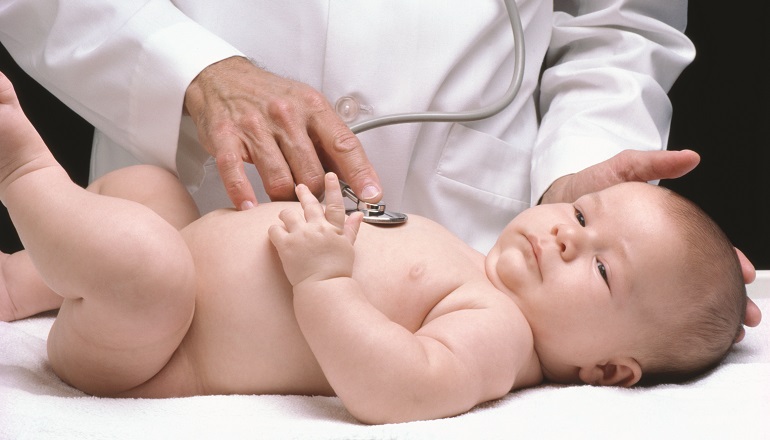Choosing a doctor is a big decision for any new parent, and the choice is especially important for adoptive families. If you know nothing about the birth family’s medical history, or your child’s medical records are incomplete, you’ll want a medical professional with first-rate diagnostic skills to focus on areas of possible concern. Take your time in finding a doctor who will work with you–answering questions, addressing concerns, providing information.There are several steps you can take make your choice a good one.
Begin by asking your friends, neighbors, adoption support group members, and adoption agency for recommendations. With names in hand, check with the American Board of Medical Specialties and the American Academy of Pediatrics (AAP) to find out which ones are board-certified.
Pediatrician or Adoption Specialist?
Doctors who are members of the AAP’s Section on Adoption and Foster Care will be well-informed about medical issues for children adopted domestically, internationally, and via foster care. They have the knowledge to evaluate referral information regarding birth parent genetic history or substance abuse, as well as the effect of institutionalization on child development.
Some families see a specialist only to evaluate the referral or the birth parents’ medical histories, and for a post-adoption check-up, while others continue to see the specialist for ongoing care. Staying with a specialist may not be practical if it involves significant travel to a larger city, higher co-pays, or a referral for each visit.
Interviewing Doctors
Schedule a short visit to meat a potential doctor (as well as nurses and his office staff), and ask all questions that would apply to your situation from the following list.
1. How much experience do you have with adopted children?
A specialist will be familiar with illnesses and conditions not generally seen in the U.S., and will know what to look for in a confusing or incomplete medical record. Although you may be able to find a regular pediatrician whose practice includes many other adopted patients, don’t let a doctor’s lack of experience with adoption keep you from choosing him if it feels like the right fit.
2. What is your philosophy on antibiotics?
According to the Centers for Disease Control and Prevention and the AAP, antibiotics are generally overprescribed, and aren’t necessary for common colds, the flu, and viral infections. Your doctor should be able to explain why he is or is not prescribing an antibiotic.
3. What is your position on circumcision not performed immediately after birth?
This is a personal decision each family will have to think through carefully, and the doctor may also have strong feelings about this surgery. Either way, she should be able to discuss the risks and benefits involved.
4. What is your philosophy concerning vaccinations?
The AAP strongly recommends that all children be vaccinated, and it maintains a standard and a “catch-up” schedule. Your doctor should be able to review your child’s immunization record and begin vaccine series or repeat vaccinations, as necessary. She should also be able and willing to answer any questions you have about vaccine safety, the illnesses each on prevents, and any complications you should watch for.
5. Can I call with questions any time?
Ideally, you should be able to speak to the doctor directly or to an on-call nurse at any hour of the day. Many practices put you through to an office line during business hours, and connect you to an emergency line for after-hours calls.
6. Who covers for you when you’re on vacation?
If the doctor is a member of a larger practice, you’ll probably see one of the other doctors when he is away. If not, the office should be able to refer you to another pediatrician in the area.
7. How do you feel about raising a child as a vegetarian?
If your family is vegetarian (or follows any other special diet), you’ll want a doctor who supports that lifestyle, and makes sure that your child receives appropriate nutrition. If the child you’re adopting comes home severely malnourished, the doctor should be able to advise you about modifying your family’s diet, or adding supplements if needed.
8. What is the average wait for a first well-baby appointment?
You’ll have to decide whether the answer given works with your schedule, but you should explain that you’ll need to bring your child in for a thorough post-adoption checkup soon after he comes home, and that you may not be able to predict the timing. If you can’t be accommodated, you may need to find a different doctor. You can generally schedule subsequent appointments at each office visit.
9. To whom do you refer children who are developmentally delayed?
The doctor should be able to run initial tests herself. The office should maintain a list of trusted specialists, and give you information about your state’s Early Intervention (EI) program, which provides services free of charge, if your child is younger than three. You may have to travel to a larger city or to a university medical center for the appointment with the specialist.
10. What is your policy for seeing a sick child? First come, first served or we must make an appointment?
Some doctors maintain drop-in hours for sick patients, but offices can be hectic and crowded, with long waits, at these times. If you call to make an appointment for a very sick child, you should be able to be seen that day or the next morning (with the doctor’s advice for night-time care) by your primary pediatrician or another practice member.
Your Child’s First Appointment
Within a few weeks after your baby comes home, see your pediatrician for a comprehensive evaluation. Schedule this appointment as soon as you receive your travel dates.
At this appointment, your child will need to be screened for a range of diseases and exposure to toxins and parasites, receive a developmental evaluation, as well as vision and hearing testing, and have his immunizations validated (many may have to be repeated). If your doctor isn’t an adoption-medicine specialist, you may need to request the specific recommended tests by name. See “The Post Adoption Checkup” for a list.
The Ongoing Relationship
In subsequent visits, the doctor should help you monitor your child’s development, keep immunizations on track, and note whether she’s reaching milestones at the appropriate times.
Keep a record of any non-urgent questions that occur to you between appointments, so you don’t forget to ask them at the next well-care visit.
Whenever you deal with the doctor’s office, pour on the charm: The staff is more likely to go the extra mile if you’re unfailingly polite. Save demands for instant service for true emergencies.
The medical professional whom you select will be involved throughout your child’s growing years, so you, and your children should be comfortable with her form the start.






